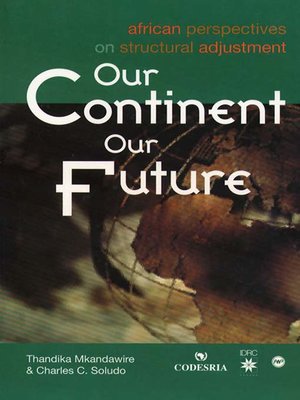Our Continent, Our Future
ebook ∣ African Perspectives on Structural Adjustment
By Thandika Mkandawire

Sign up to save your library
With an OverDrive account, you can save your favorite libraries for at-a-glance information about availability. Find out more about OverDrive accounts.
Find this title in Libby, the library reading app by OverDrive.



Search for a digital library with this title
Title found at these libraries:
| Library Name | Distance |
|---|---|
| Loading... |
For decades now, the countries of sub-Saharan Africa have implemented the structural adjustment programs of the Bretton Woods Institutions. The results, however, have been less than sterling. Extreme poverty and underdevelopment continue to plague sub-Saharan Africa, and it is now generally agreed that a new approach is urgently required.
Our Continent, Our Future presents the emerging African perspective on this complex issue. The authors use as background their own extensive experience and a collection of 30 individual studies, 25 of which were from African economists, to summarize this African perspective and articulate a path for the future. They underscore the need to be sensitive to each country's unique history and current condition. They argue for a broader policy agenda and for a much more active role for the state within what is largely a market economy. Finally, they stress that Africa must, and can, compete in an increasingly globalized world and, perhaps most importantly, that Africans must assume the leading role in defining the continent's development agenda.
Our Continent, Our Future is the very first publication to present the African perspective on the Bretton Woods approach to structural adjustment, and it does so with the input and support of top economists and scholars from every corner of Africa. This important book should be read by students, professors, academics, and researchers in development, economics, and African studies; professionals in donor organizations around the world; policymakers in both the governmental and nongovernmental sectors; and all citizens concerned with the future of Africa and issues of sustainable and equitable development.







